Miklós Jancsó
Also Known As: Jancsó Miklós, Миклош Янчо, 米克洛什·扬索, 미클로시 얀초, 미클로슈 얀초, 미클로스 얀크소, 얀초 미클로시, 얀초 미클로슈
Biography: Miklós Jancsó (27 September 1921 – 31 January 2014) was a Hungarian film director and screenwriter. Jancsó achieved international prominence from the mid-1960s onwards, with works including The Round Up (Szegénylegények, 1965), The Red and the White (Csillagosok, katonák, 1967) and Red Psalm (Még kér a nép, 1971). Jancsó's films are characterized by visual stylization, elegantly choreographed shots, long takes, historical periods, rural settings, and a lack of psychoanalyzing. A frequent theme of his films is the abuse of power. His works are often allegorical commentaries on Hungary under Communism and the Soviet occupation, although some critics prefer to stress the universal dimensions of Jancsó's explorations. Towards the end of the 1960s and especially into the 1970s, Jancsó's work became increasingly stylized and overtly symbolic. He received five nominations for the Best Director Award at the Cannes Film Festival. winning for Red Psalm in 1972. In 1973 he was awarded the prestigious Kossuth Prize in Hungary. He received awards for his life work in 1979 and 1990, at Cannes and Venice respectively. Description above from the Wikipedia article Miklós Jancsó, licensed under CC-BY-SA, full list of contributors on Wikipedia.
Department: Directing
Place of Birth: Vác, Hungary
Adult: No
Birthday: September 27, 1921
Age: 103 years old
Gender: Male
Deathday: January 31, 2014
Popularity:
Known For:
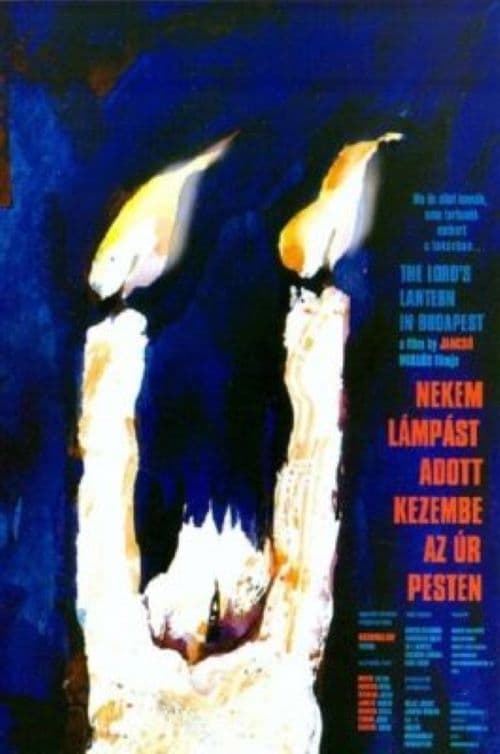
The Lord's Lantern in Budapest

Overview: In the Kerepesi Street cemetery, three grave diggers contemplate the fate of the world, then they step out of this role and in a sequence of episodes they play the typical figures of contemporary Hungarian reality, the fat cat, the swashbuckler, the victim, underworld chieftains, and present little absurd dramas of love, marriage, friendship, public order and legal safety. The author and the film director walk among them all the time, contemplating, laughing at their plays. The stories starting from the graveyard and returning there warn of the inevitability of death. The author and the director (Gyula Hernádi and Miklós Jancsó) wisely make friends with death.
Genres: Comedy Drama
Original Language: hu
Release Date: 1999-01-28
Popularity:

Damn You! the Mosquitoes
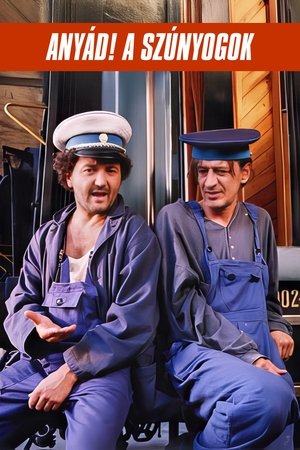
Overview: Kapa, Pepe and Mesi would like to buy a scrapyard of trains, to start a nostalgia train and earn a lot of money. The capital to start with they want to get from grandpa, who has come home from America with a suitcase full of money. Everybody wants Mesi to approach the old man, because she is the only one he would speak to. But Mesi is more concerned with the idea that she wants a child, by now from anyone, while Pepe is jealous. Kapa’s alleged son emerges, with the mafia behind him: they, too, are eager to get grandpa’s money. After threats and blackmailing, poisoned apples are sent, with only one side of them poisonous. Those dead, by the way, are resurrected by the sound of a song. At last, nobody manages to get the money, but it wouldn’t make sense anyway: it’s all fake. The Statue of Liberty, however, turns out to be blind.
Genres: Comedy
Original Language: hu
Release Date: 2000-02-10
Popularity:
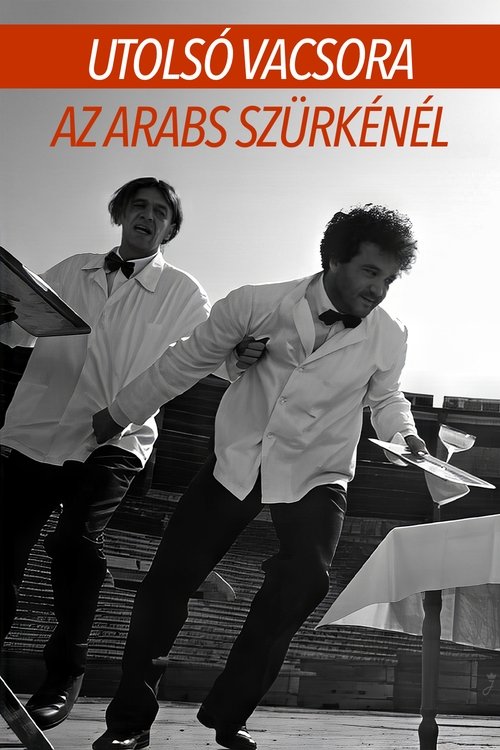
Last Supper at the Arabian Gray Horse

Overview: Waiters’ competition at Heroes’ Square in the late thirties. Dressed as waiters, Kapa and Pepe awake in the bronze chariot of the millennial sculpture group. They drive along the Danube promenade, and on the concrete reinforcement of the demolished Budapest rondella hotel they get involved in a showdown of political background. In the burnt-down Sports Hall the waiters train for a last supper, Pepe and Kapa run around the big laid table with trays in their hands. While doing so, Pepe keeps crying out: "I am the best one, I am the most beautiful one, I am the king, I am the god..." Sitting in a boat on the Danube, a ship goes past them, and the Niagara falls, majestic and breathtaking, resound in their ears. On each passing away something new will come to life – as rapped by Sub Bass Monster.
Genres: Comedy
Original Language: hu
Release Date: 2001-02-15
Popularity:
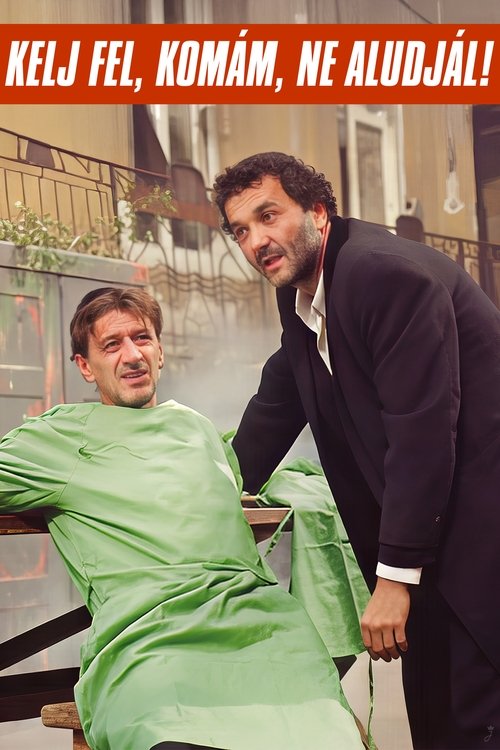
Wake Up, Mate, Don't You Sleep

Overview: This time, Kapa and Pepe are first of all prisoners of war – and convicts taken to forced labor service, Jews, Hungarian soldiers, German soldiers. Once they are to be executed, then again they are to perform executions. The film tells in spectacular episodes about the fact that in the past more than one century and a half we kept marching from war to war; occupation and liberation turned out to be indifferent, and why couldn’t the Jews execute the SS-guys? Our heroes hover about dilapidated barracks, then again on the bridges of the capital they guess whose satellites or eternal friends for all times we might be just now. In the cupboard, among the preserved fruit bottles, Stalin is still hiding. The authors of the film are cited before court, then in a showcase hospital they are waiting for the end to come. A Soviet soldier-maid closes the film with a Péter Nádas-quote.
Genres: Drama Comedy
Original Language: hu
Release Date: 2003-02-06
Popularity:
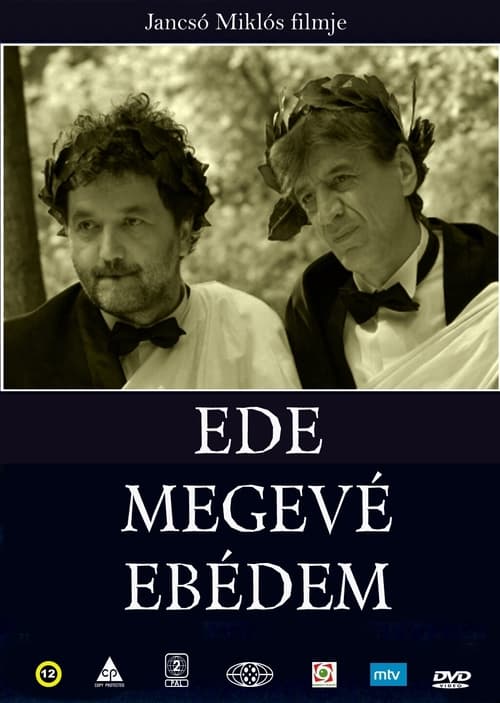
Ed's Eaten Elevenses

Overview: Jancsó’s farce, similar to the previous ones, is about our time and about death. Pepe marries into a family of mafiosi, with the father-in-law rolling in money. In a joint venture they establish the first Hungarian Prison Limited company, where there is a menu, the prisoners are residents, and they furnish the place of execution for those volunteering to execute themselves. It turns out that the first voluntary hanging should be demonstrated on Pepe. In 180 AD Emperor Marcus Aurelius is dying in Vindobona, being fed with blades of hay by uncle Miki himself, and his son Kornél Mundruczó. Kapa provides for communication: he insists on telling lies, lies and again lies. Furthermore, there are several to die and to revive, to win and to lose, and Melancholy Béla is still alive.
Genres: Comedy
Original Language: hu
Release Date: 2006-10-12
Popularity:
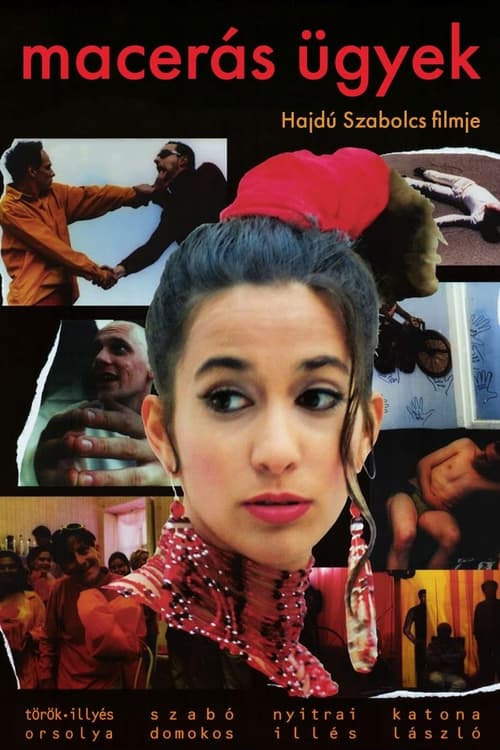
Sticky Matters

Overview: A girl is on the skids because of love. A short tempered and passionate young man falls in love with the girl. His emotions are so powerful that he is prepared to surrender his whole personality. The boy has a good friend, who is not sure whether their bond is friendly or homosexual. Before the girl arrived, the friendship was close, but now she has thrown a spanner in the works. How do they react to the new situation?
Genres: Drama
Original Language: hu
Release Date: 2001-10-11
Popularity:

Jancsó Shoots

Overview: A making-of documentary shot on the set of Miklós Jancsó's 2003 film "Wake Up, Mate, Don’t You Sleep".
Genres: Documentary
Original Language: hu
Release Date: 2002-01-01
Popularity:
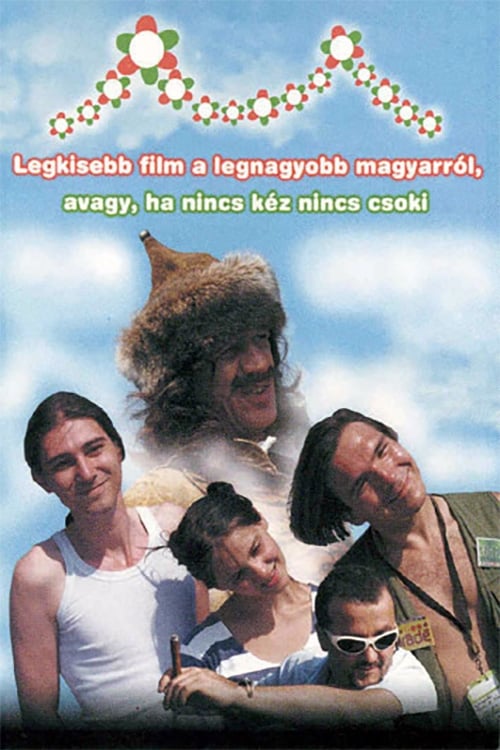
Legkisebb film a legnagyobb magyarról

Overview:
Genres: No genres available
Original Language: hu
Release Date: 2002-01-01
Popularity:
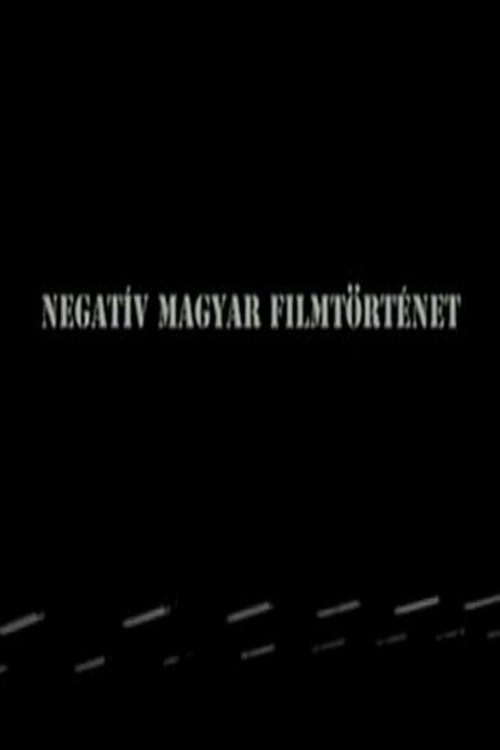
Negative history of Hungarian cinema

Overview: Reconstructions of unrealized Hungarian films in cooperation with the greatest Hungarian film directors.
Genres: Documentary
Original Language: hu
Release Date: 2010-01-01
Popularity:

A Kádár-korszak demokratikus ellenzéke

Overview: A documentary about the Democratic Opposition of socialist Hungary.
Genres: No genres available
Original Language: en
Release Date: 2009-01-26
Popularity:

Sodankylä Forever

Overview: The Midnight Sun Film Festival is held every June in the Finnish village of Sodankylä beyond the arctic circle — where the sun never sets. Founded by Aki and Mika Kaurismäki along with Anssi Mänttäri and Peter von Bagh in 1985, the festival has played host to an international who’s who of directors and each day begins with a two-hour discussion. To mark the festival’s silver anniversary, festival director Peter von Bagh edited together highlights from these dialogues to create an epic four-part choral history of cinema drawn from the anecdotes, insights, and wisdom of his all-star cast: Coppola, Fuller, Forman, Chabrol, Corman, Demy, Kieslowski, Kiarostami, Varda, Oliveira, Erice, Rouch, Gilliam, Jancso — and 64 more. Ranging across innumerable topics (war, censorship, movie stars, formative influences, America, neorealism) these voices, many now passed away, engage in a personal dialogue across the years that’s by turns charming, profound, hilarious and moving.
Genres: Documentary
Original Language: fi
Release Date: 2010-08-05
Popularity:
